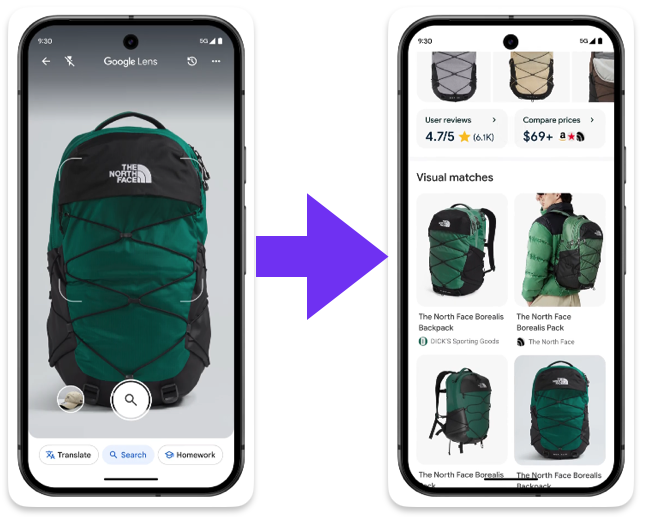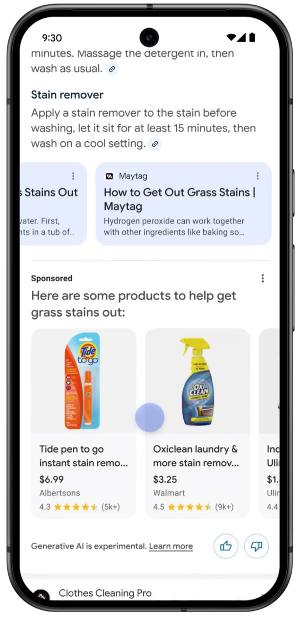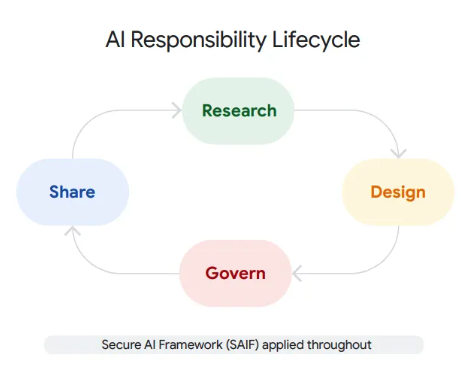Agency Updates including Google AI, WordPress Drama & the WP Engine Ban
Bethany Freeman
Oct 10
This week, Google is at it again with some future proofing updates that aim to give search a serious upgrade. Imagine helping your clients reach customers through an AI-driven search that practically “knows” what they’re looking for? Soon you wont have to imagine anymore thanks to new tools like Google Lens and new Ads in AI Overviews. We’re also digging into the drama in the WordPress world—WP Engine’s big ban has plenty of site owners rethinking their hosting strategy.
From AI’s impact on sensitive topics (hello, YMYL) to innovative ad placements and visual search, there’s a lot here to help you fine-tune your strategies and show clients some real ranking power. Ready to dive in?
Adaptify Minute Mastery: Unlocking Google Lens & AI Integration
Google AI Evolves Search: Lens, Ads, and Enhanced Overviews
Remember when "searching" meant typing words into a box? Those days are going the way of the dial-up modem. Google's latest AI upgrades are turning search into a multi-sensory experience that would even make Iron Man's J.A.R.V.I.S. jealous.
Google is continuing to revolutionize search by integrating even more advanced AI capabilities, such as Google Lens and Ads in AI Overviews, which creates new opportunities for brands to connect with audiences at the perfect time. In a recent Google Marketing Live event, Google highlighted its vision for ads in an AI-driven world, demonstrating how search experiences can become more personalized and visually interactive. Today’s consumers aren’t just typing—they’re speaking questions, using images, and even recording videos to engage with the world around them, and Google’s search tools aim to capture and reflect this shift in behavior.
With Lens, users can search visually by taking a photo or uploading one. For instance, if someone spots a backpack in a shop window, they can use Lens to snap a picture and instantly explore price comparisons, available colors, and retailer options. Leveraging the Google Shopping Graph, which catalogs over 45 billion products, Lens quickly matches the photographed item to relevant shopping results, enabling seamless transitions from interest to purchase. Even in October it might not be too early for Santa's elves to be looking for a new job – who needs them when you've got Google Lens practically doing all the shopping for you?

The elves won't be able to get a job in search, as Google AIO (AI Overviews) has that covered too. For example, when a user asks, “How do I remove coffee stains?” AI Overviews now provide tailored responses alongside shopping ads related to products for stain removal. These ad placements are marked with Google’s “Sponsored” label, ensuring transparency while enriching the user’s search experience with immediately actionable results. This setup reduces the need for further searches and enables users to discover and purchase solutions at the moment they need them.

Want to see Lens and Google’s improved AIO in action? Both are now live on mobile in the U.S., redefining how consumers interact with search, making it more visual, immediate, and tailored to user intent. As search continues to evolve, these updates reflect Google’s dedication to connecting consumers with relevant products and services, helping brands reach highly engaged audiences without compromising the seamless flow of information.
Exploring Google’s Responsible AI Framework
As AI continues to become as ubiquitous as coffee shops, a single burning question is on everyone's mind: "But can we trust it?" Google's been listening, and they're rolling up their sleeves to address those concerns head-on.
During the recent Google Responsible AI Summit, leaders shared the strides Google is making in building trustworthy AI systems that strive to maintain user safety. With their AI Responsibility Lifecycle framework, which encompasses stages from Research to Sharing, Google is focused on not only building responsible technology but also preparing AI to handle critical challenges—like content moderation and abuse detection. This lifecycle approach aims to strengthen AI’s role in society without compromising accuracy or user safety.
To enhance AI reliability, Google’s teams use red-teaming exercises to test for biases and abuse, which is crucial as more people rely on AI tools for information. The Trust & Safety team has increased the model’s accuracy and language coverage, ensuring it can catch nuances across various contexts. This dedication to security, coupled with Google’s SynthID watermarking for AI-generated media, is setting new standards in AI ethics.

WordPress Update: WP Engine's Ban
In a plot twist worthy of a Silicon Valley soap opera, WP Engine has been banned from WordPress.org. The reason? A spicy cocktail of licensing disputes and alleged feature abuse. The message from WordPress is clear: "It's not me, it's you."
So what really happened? The ban arose from licensing disputes and WP Engine’s alleged misuse of WordPress’s core features to monetize services. For site owners using WP Engine, the message is clear: contact WP Engine directly to address any issues resulting from this change. WordPress expressed a firm stance, encouraging users to explore alternative hosts if they seek the original WordPress experience.
This ban underscores ongoing tensions as the WordPress ecosystem grows and hosting providers balance between community-driven standards and proprietary practices. With the removal of WP Engine’s access to WordPress’s core tools and community resources, users should prepare for changes in service and support.
This means that if your clients are with WP Engine, it may be time to have "the talk." Discuss contingency plans and alternative hosting options. Remember, in the world of web hosting, it's always good to have a Plan B (and maybe a Plan C, D, and E).

Adapting AI for Sensitive “YMYL” Topics
Recently, when it comes to Your Money or Your Life (YMYL) topics, Google's AI has started acting like a cautious grandparent – always erring on the side of "maybe you should ask a professional."
New studies are showing the rigor with which Google ensures its AI adheres to high trustworthiness standards, especially in critical areas such as finance, health, and politics. Health, for example, remains a focus area where Google’s AI consistently includes disclaimers, guiding users to consult professionals despite easy-to-find answers.
In finance, we see 41.67% of financial searches now triggering AI Overviews, frequently linking to trusted sources like Investopedia and NerdWallet. Political topics see fewer AI Overviews, with only 16.67% of political keywords triggering AI responses—a clear move by Google to limit its role in this sensitive space.
The studies also showed interesting search behavior patterns. Health-related queries often begin with “how,” like “how to handle an asthma attack,” while finance searches use “what” or “how to,” such as “what happens if I don’t pay taxes.” Answer? Maybe you should consult a professional.
One last note - Google’s continued commitment to ensuring quality information extends to restricting certain highly sensitive queries, especially those that could significantly impact user well-being. It's a delicate balance between information access and user safety, and Google seems to be threading that needle with care.

It’s clear that SEO search has entered hyperdrive space. With AI-enhanced results, visual queries, and algorithms walking on eggshells, the SEO game is changing faster than a chameleon in a disco. But don't worry! Each twist and turn brings fresh opportunities to innovate and stay ahead of the pack. Ready to elevate your clients’ SEO strategy? With these latest Google updates, agencies like yours have new tools and insights to make search interactions more dynamic and meaningful. Lets get started together. Check out Adaptify.ai for more information and book a demo today.

